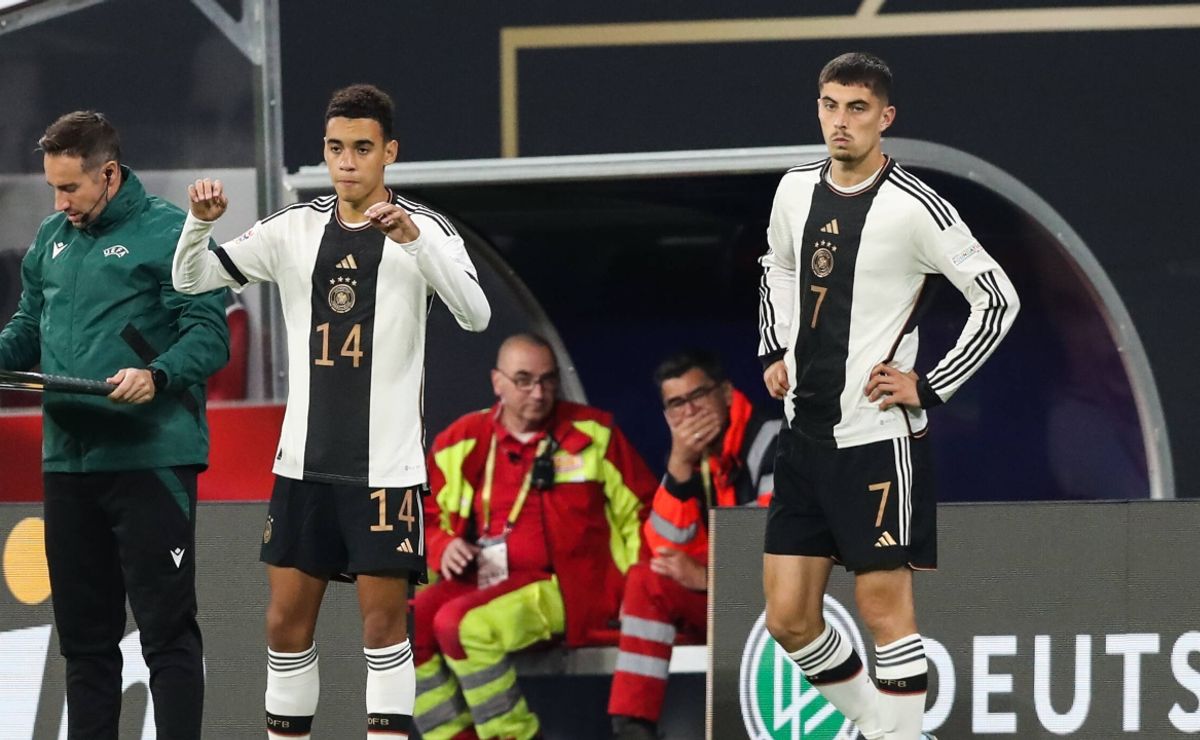
The headlines took eight years to make. Mario Götze, hero of the 2014 World Cup final and former golden boy of German football, returns. He has had health problems, five years in the international desert and was apparently buried as an elite artist. But excellent form since his return to Germany amid Eintracht Frankfurt’s dynamic forward play brought Götze back in style.
Or do you have it? In addition to Götze, two minor questions were simmering in the German media before the announcement. Another hero of 2014, Mats Hummels is not exactly the player he was in Brazil. Then Timo Werner’s injury left doubts about the team’s number 9.
The two options for the latter are fan favorite Niclas Füllkrug from newly promoted Werder Bremen, the highest scoring German in the Bundesliga. The other is pundits’ favourite, 17-year-old Youssoufa Moukoko of Borussia Dortmund. In the end, both forwards set course for Doha.
Havertz and Musiala set to steal the show in their first World Cup appearance
But squad depth is one thing; actually stealing the show is another. Germany have a number of options that can make a difference on the pitch. Perhaps Hansi Flick’s roster announcement points to hints at his starting XI.
Germany’s two most likely game-changers conveniently flew under the radar yesterday.
All about Jamal at #10
At just 19 years old, Jamal Musiala is already an indispensable link and goalscorer for Bayern Munich, Hansi Flick loves him and, complemented by his Bayern teammates, he should be Germany’s inspiration in Qatar. Musiala is tearing up the Bundesliga with ease and this World Cup could make him the world star that Götze never really was.
Musiala’s place in the squad was never in doubt and he needed no starters. But the media buzz around Götze could be a sweet release of pressure for Germany’s real point man.
In fact, Super Mario has been in shape for an attractive team from Frankfurt. Watch before a goal against Hoffenheim on November 9. But Musiala is playing his third consecutive season of Champions League football for a truly elite team. He has the form, the high-level skill set and the essential on-field connections with Kimmich and company.
If global fans needed a preview to measure Musiala against previous generations of German soccer idols, he delivered a masterclass in Frankfurt vs Bayern three months ago. Sharing the field opposite Götze, Musiala was dazzling, fending off tackles and creating chances at will. Götze showed flashes of class. But next to the younger man, he seemed heavy and slow.
Don’t Forget False-9 Kai
Although decisive in the Champions League at just 21 years old, Havertz has struggled at Chelsea. A huge price tag, chaotic club politics and frequent changes of management have not helped. But Havertz earned respect and developed the game from him.
Preferred at number 9 by Romelu Lukaku for long periods of the Belgian’s final season at Stamford Bridge, and frequently replacing him ever since, Havertz, along with Liverpool’s Bobby Firmino, is probably the Premier League’s best exponent of the role of ” fake 9″.
And in a German setup that has lacked a standout centre-forward for most of the last decade, he is also used to it at international level.
Gareth Southgate caused laughs when he selected four right-backs for the England squad at Euro 2020. How about Müller, Havertz, Musiala and Götze competing as number 10 for Germany? Of course, not all of them will take the field simultaneously against Japan on November 23.
Most likely, the German team is designed for flexibility at the top of the field. Müller and Havertz can lead the line, and have the elite experience that Füllkrug and Moukoko lack “just happy to be there”, and Götze is a reasonable substitute for Musiala in extra time and dead tires.
Nineteen and 23 years old, respectively, the World Cup awaits the new era of German talent led by Jamal Musiala and Kai Havertz.
PHOTO: IMAGO / Christian Schroedter
World Cup 2022 Guide
Here are some resources to help you get the most out of soccer’s biggest event!
